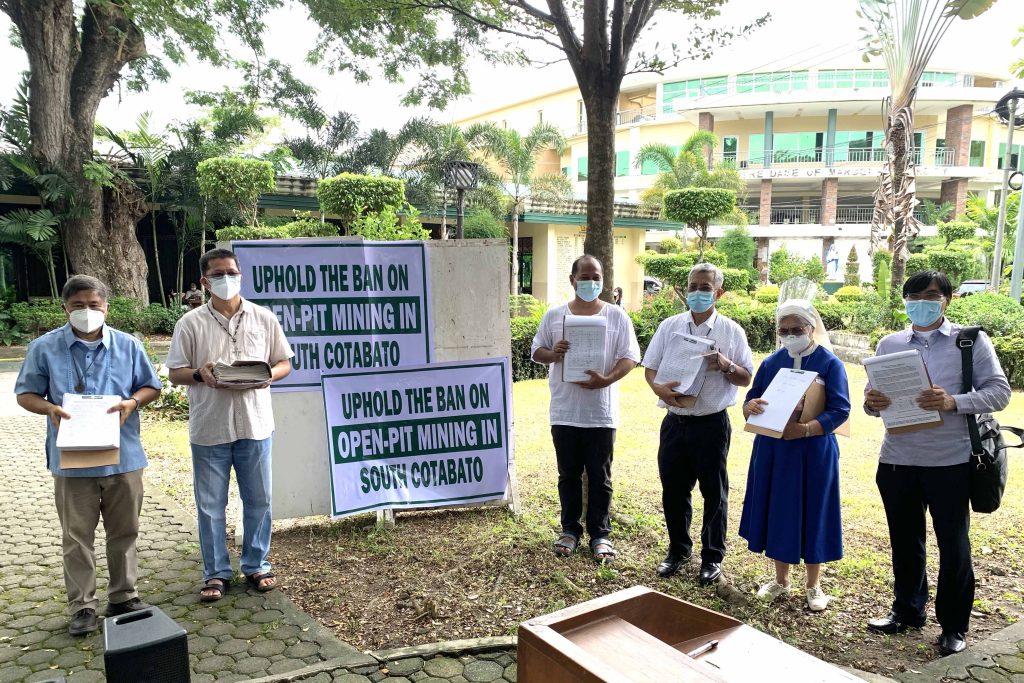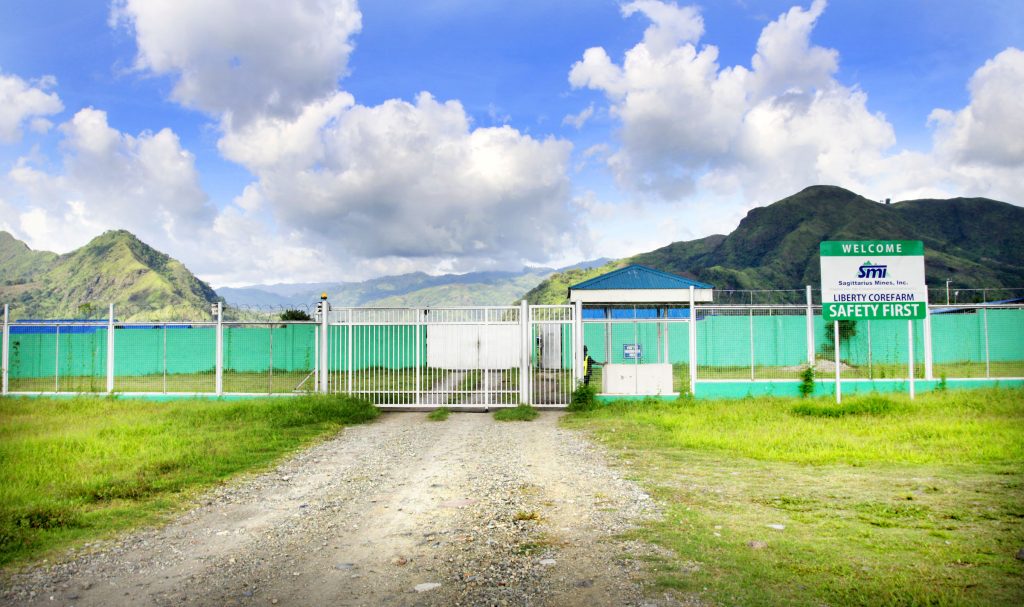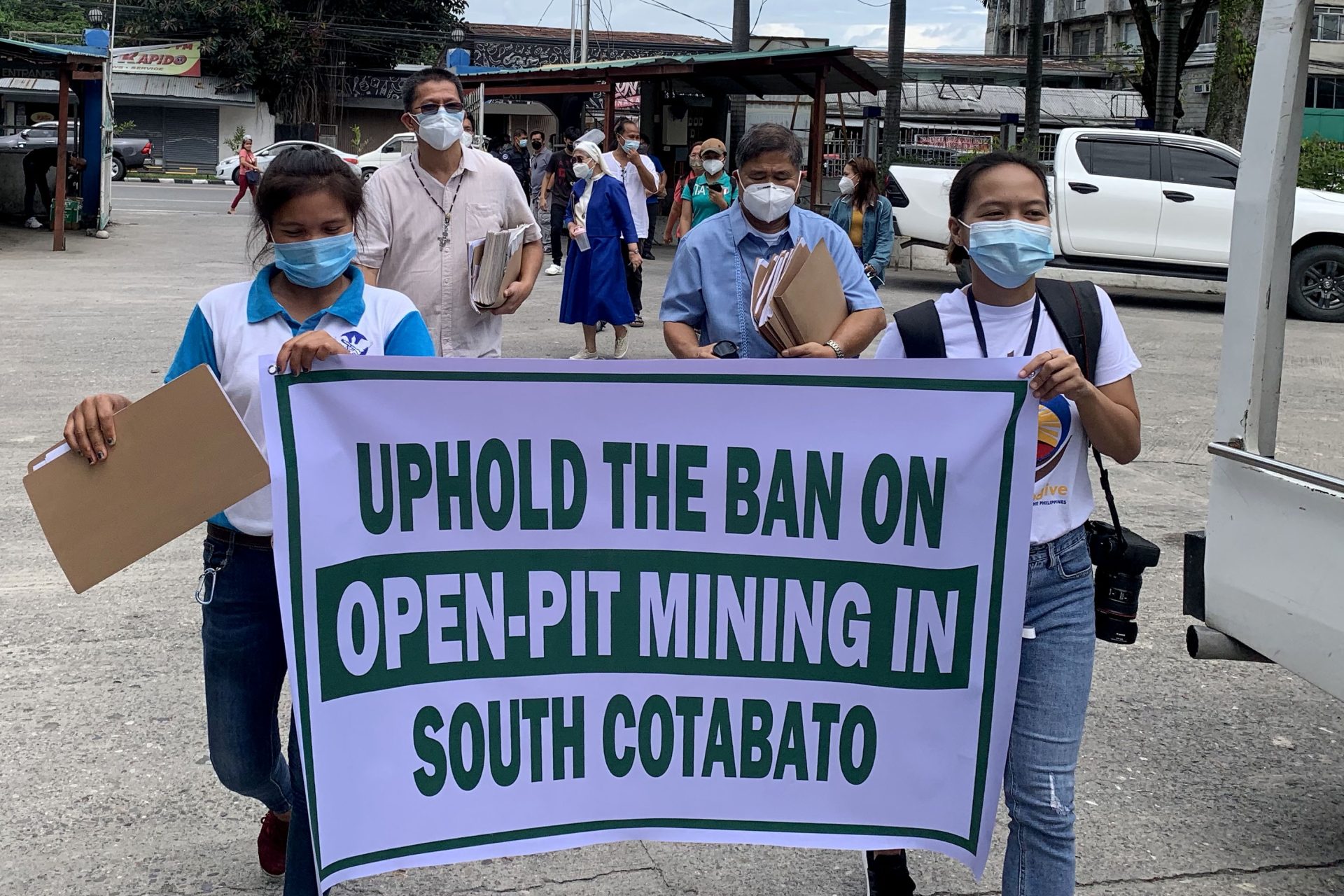Environmental activists and faith-based groups in the Philippines lamented the decision of the provincial government of South Cotabato in the southern region of Mindanao to lift the ban on open-pit mining.
“We will not take this sitting down. We will not take this silently,” said Bishop Cerilo Casicas of the Diocese of Marbel, adding that “the future of the province was decided in less than 15 minutes.”
The prelate was referring to the decision of the provincial board on Monday, May 16, to vote for the lifting of the open-pit mining ban.
The plenary meeting of the provincial officials voted to approve the proposed amendments to the province’s Environment Code, including the lifting of the ban on open-pit mining.
No one from among the 11 members of the provincial board present during the session objected. Ester Marin Catorce, a member of the board who openly stood against the proposal in the past, was not present during the session.
Passionist priest Rey Carvyn Ondap, a member of the Passionists International – UN General Consultative Status in New York, described the board members who approved the lifting of the ban as “like thieves in the night.”
He said the lifting of the prohibition on open-pit mining shows “how low the priorities of elected officials are vis-à-vis the environment.”
“The lifting of the ban on open-pit mining is the death certificate of the people of [South Cotabato, Sarangani and General Santos City], and its neighboring regions,” said the priest.
“All members of the [provincial board] who voted for it are forever liable of environmental destruction and murder of the future generation,” he added.
The Legal Rights and Natural Resources Center, which campaigned for the repeal of the Philippine Mining Act of 1995, described the decade-long ban on open-pit mining in South Cotabato as a model for other local government units in integrating environmental conservation to development.
“It is tragic that the provision banning open-pit mining in their landmark ordinance has been lifted,” read the group’s statement.
With the lifting of the ban, the group expressed worry about the negative impacts of the Tampakan project.
“Scientists project droughts in Mindanao because of climate change,” it said. “This mining project puts local water supply to communities and for agricultural livelihoods in grave danger.”

Environmental activist group, Kalikasan People’s Network for the Environment slammed the decision, warning that it will allow mining projects to destroy “life-giving watershed ecosystems” in the province.
Alyansa Tigil Mina (Alliance to Stop Mining), an alliance of anti-mining activist groups, also condemned “in the strongest possible terms” the lifting of the ban.
Rene Pamplona, spokesperson of the alliance, accused the South Cotabato government of ignoring warnings about the negative effects of the mine on the local community, particularly farmers who rely on irrigation for their crops.
“They railroaded the whole process. They made themselves technical experts,” Pamplona said.
“We are appalled by the duplicity employed by the [provincial board] members. We believe that the provincial legislators cheated the stakeholders of the province in four ways,” read the group’s statement.
The lifting of the ban has removed the final regulatory obstacle for a long-delayed copper and gold project in the province.
The Tampakan project on Mindanao island has been described by its developer Sagittarius Mines as “one of the largest undeveloped copper-gold deposits in the world.”
It was previously estimated to cost US$5.9 billion and was due to start operation in 2016.
But the project has faced numerous problems, including the local government’s 2010 ban on open-cast mining and opposition from church, community and environmental groups.

Sagittarius, which is headquartered in South Cotabato and is a government contractor, had already obtained the necessary certification from the National Commission on Indigenous Peoples and agreement from the indigenous community.
Open-pit mining directly extracts minerals on the ground and differs from other methods that require tunneling or underground mining.
The Philippines is one of the world’s biggest suppliers of nickel ore and is also rich in copper and gold, but the government estimates 95 percent of its mineral resources remain untapped.
Mining revenues contribute less than one percent of GDP to the economy, according to the latest available government data.
A nationwide ban on open-pit mines was lifted last year in a bid to revitalise the country’s coronavirus-battered economy.
It was imposed in 2017 when the then-environment minister blamed the sector for widespread ecological damage.
Manila has since reversed course, encouraging mining investments to shore up government revenues as lockdowns and quarantine restrictions ravaged the economy.
In April 2021, President Rodrigo Duterte — who had previously threatened to shut down the sector completely — lifted a nine-year ban on new mining deals set by his predecessor following public backlash over a series of devastating accidents. – with a report from Agence France Presse







